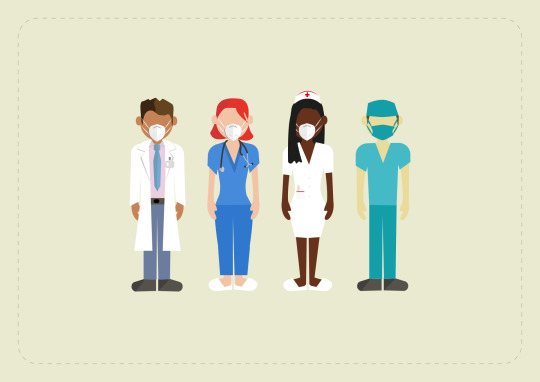Text
What Is Primary Health Care?

Primary health care is the first level of care that people receive when they have a medical concern or need. It takes a whole-of-society approach and encompasses health promotion, disease prevention, treatment, rehabilitation and palliative care.
It’s important to keep in touch with your Primary Care Physician (your GP) to make sure you’re getting the best possible treatment for your condition and that you’re staying healthy. This can help prevent problems down the road and reduce the number of times you need to see a specialist in the future.
Your GP can also help you with lifestyle changes, like quitting smoking or eating more fruit and vegetables. They can also recommend screening tests, which detect problems before they become serious. They can also help you manage ongoing and long-term conditions, such as diabetes, high blood pressure or depression.
They can also refer you to other medical specialists if needed. Your GP can also give you advice on how to look after yourself, for example, by making sure you are up to date with your vaccinations and getting you on the right medication.
You can also ask them about your general health, including any symptoms you might be experiencing or any problems you’re having at home or at work. This is a good opportunity for them to get to know you better, which can help with future care and make you feel more comfortable sharing your personal health information.
Having a primary healthcare professional that offers Primary Care Services and is familiar with you and your medical history will make it easier for them to find solutions to your medical issues. They will also be able to coordinate all the different treatments you need, which can save you time and money in the long run.
They can also help you find the right allied health practitioner for your specific needs, such as a dentist, osteopath or physiotherapist. They can also recommend a dietitian or a counsellor, if you’re feeling overwhelmed by your health.
The primary care clinician also acts as an advocate for the patient within the larger health system, to ensure that the patient is aware of who is directing their care and that they know what to expect from each stage of their treatment or procedure. This can improve patient satisfaction and increase retention of patients in the healthcare system, which can be crucial to achieving a high quality of care for all.
A strong primary healthcare system has the power to make a huge difference for people’s lives. It can save lives and reduce hospitalisations, as well as the financial burden on the public health system.
It can also support the community and environment by addressing the health needs of all members of the community, regardless of their race, religion, socio-economic status or beliefs. It is an essential part of the health system and contributes to a country’s overall development strategy.
Primary health care is a complex field, but it has an exciting future. It has the potential to transform health systems around the world, helping us reach UHC and the Sustainable Development Goals. Check out this post that has expounded more on this topic: https://en.wikipedia.org/wiki/Primary_health_care.
0 notes
Text
The Importance of Primary Health Care Services

Primary health care services form the core of a healthcare system, supporting all people to stay healthy and access care when they need it. They also help reduce the costs of care by offering lower utilization of emergency department visits and hospitalizations.
Primary Care Services are designed to cover a variety of health needs from preventive services to treatment for common conditions and injuries. They are usually delivered by doctors, nurses, nurse practitioners, physician assistants and other health professionals who maintain long-term relationships with their patients. They may also coordinate their patients’ care with specialists.
They are also often in touch with community health services to learn about issues that affect your overall well-being. This allows them to be up to date on new health threats like a flu outbreak in your area or an unusual illness that might affect children.
These frontline health workers at Meridian HealthCare are in a position to spot these types of unexpected threats and report them to their local health departments. This means they can be on the ground when disease is brewing and can provide immediate care for affected people.
In this way, they can keep communities healthier and save lives by preventing diseases before they have a chance to spread. Similarly, they can detect early signs of health problems so they can refer patients to specialists.
Moreover, they are the first point of contact for the general public with the health system. They can inform and guide the general public in understanding the different levels of care available within their health systems.
They also ensure that health policies are aligned with the priorities of the community and the national development strategy, ensuring that the most appropriate care is offered at the right place and time.
When done properly, primary care can significantly increase the number of individuals who receive regular healthcare and decrease the amount of time spent in hospitals or clinics. It can also reduce the financial burden on the public healthcare system.
Achieving universal access to PHC requires a holistic approach that is centred on the needs and preferences of individual, family and community members. It also must be based on a full participation of communities in the planning, organization and management of their primary health care.
It must have an orientation towards the highest standards of quality and safety, with an emphasis on the rights of all people to achieve health without discrimination of race, religion, political belief, social or economic status. It must be scalable and able to respond equitably and efficiently to the health needs of citizens.
The Alma-Ata Declaration of 1978 has endorsed the need to place primary healthcare at the core of a country’s total development strategy. This is the most efficient and effective way to organise a health system, empowering individuals, families and communities to take charge of their own health.
It is the best way to achieve universal health coverage. The WHO and UNICEF have urged governments worldwide to adopt PHC as the basis for their national health strategies and pledged to promote it as an important element of social and economic development. You can learn more about this topic at https://en.wikipedia.org/wiki/Primary_care_service_area.
0 notes
Text
The Importance of Primary Healthcare Services

Primary healthcare services are the initial point of contact between patients and the healthcare system. They offer comprehensive health care to all members of the community, regardless of age, race, social or economic status. They are also a source of knowledge and expertise in a variety of medical, mental and social ailments.
A Primary Care Physician is a specialist in family medicine, general internal medicine or general pediatrics who offers the most basic healthcare to all of their patients at the first point of contact, assessing and treating their immediate needs, while providing ongoing care for them as a member of the patient’s care team. They may provide services in the hospital, outpatient clinics or in their own practice.
They are also the most accessible level of care and provide a wide range of services including prevention, diagnosis, treatment and rehabilitation. They often refer to secondary and tertiary health care providers for more in-depth or specialised care, depending on the needs of their patients.
Moreover, Primary Care Services are also important in helping patients maintain their health and wellness, as they can help patients identify and manage chronic conditions like diabetes or asthma. They can also give advice on lifestyle habits, nutrition and other dietary recommendations.
These services can also be provided at a lower cost than higher-level healthcare, such as hospitals and specialist services. It is essential to make sure that primary care is available in every part of a country, at affordable prices.
There are a few ways that you can find a good primary care provider, including looking for them through your health insurance plan, asking friends or neighbors, or reading online reviews. Then, when you find a doctor that seems like a good fit, make an appointment to meet them and learn more about their background, communication style, and policies.
A healthy person will have many different medical and health concerns throughout their life. The best way to ensure that you receive the kind of care you need is to find a primary care physician who is trained to diagnose and treat all of your conditions.
Strong primary care provides the foundation for a strong health system, and is the key to achieving health for all. When primary care works well, people and families are connected with trusted health workers and supportive systems throughout their lives and have access to a broad range of services ranging from immunizations to treatment for illness and chronic diseases.
In addition, it is efficient, detecting and preventing illnesses before they become expensive to treat, saving lives. It is also fair and equitable, making sure that all people have the right to access health services in their communities.
In the past several years, global meetings on HIV/AIDS, noncommunicable diseases and tuberculosis have recognized that to stem the tide on these epidemics, we must build stronger primary care systems. Those systems must be sustainable and address the full range of health needs across the lifespan. This will ensure that all people can enjoy the highest attainable standard of health, without regard to their gender, age, ethnicity, religious beliefs, political convictions, or economic and social status. Check out this post for more details related to this article: https://en.wikipedia.org/wiki/Direct_primary_care.
1 note
·
View note